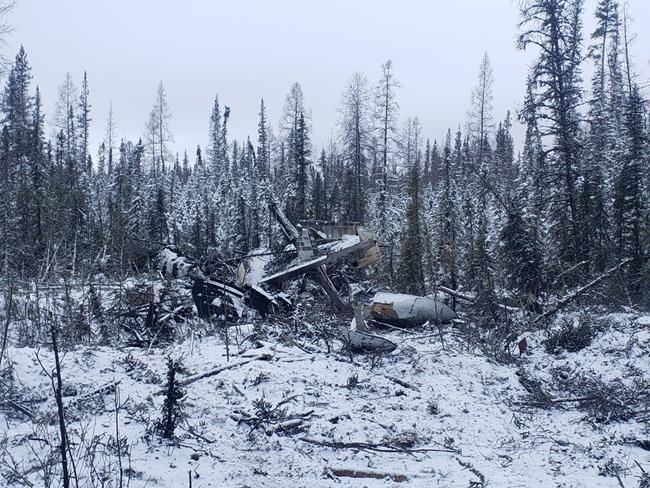Here is a roundup of stories from The Canadian Press designed to bring you up to speed on what you need to know today...
Investigators work on deadly N.W.T. plane crash
Investigators have started going through the site of a deadly plane crash just outside the town of Fort Smith in the Northwest Territories.
The Transportation Safety Board has released photos from the scene showing the wreckage of the charter plane in a heavily wooded area.
The agency says this kind of investigation is generally completed within 15 months.
The plane crashed just after takeoff, killing four mine workers and two crew members.
Atmospheric river may bring flooding to B.C.
Officials in B.C. are warning of heavy rainstorms for the South Coast region starting on Saturday.
Environment and Climate Change Canada says West Vancouver Island and the Coast Mountains could receive up to 300 millimetres of rain over five days, from Saturday Jan. 27 to Wednesday Jan. 31.
The Howe Sound area could receive as much as 250 millimetres of rain, while Inland Vancouver Island and parts of the Fraser Valley could receive 150 and 120 millimetres respectively.
The narrow bands of heavy precipitation are also known as an "atmospheric river," which occur frequently in the fall and winter in B.C.
Here's what else we're watching ...
Manitoba, Saskatchewan raise concerns about expanding eligibility for assisted dying
Canada's Health Minister Mark Holland says some provinces will stand opposed to expanding medical assistance in dying for ideological reasons, but the government wants to ensure a majority feel ready.
Holland recently acknowledged provinces have expressed fears that the country may not be ready for the change to take effect in March.
The governments of Manitoba and Saskatchewan say they are concerned about the potential risks of allowing Canadians to seek medical assistance in dying solely on the basis of a mental illness.
U.K. suspends trade negotiations with Canada, each accuses the other of not budging
The United Kingdom is hitting the brakes on trade talks with Canada after Ottawa decided not to extend temporary measures put in place after Brexit.
London announced the pause in negotiations Thursday less than a month before the ninth round of talks towards a permanent trade deal was scheduled to take place.
Trade between the two countries is governed by an interim deal signed after the U.K. left the European Union, which kept in place most trade rules.
A special quota for U.K. cheese imports, which offered the same low-tariff access to the Canadian market as the EU has, expired at the end of last month.
Woman who was hidden from Nazis reflects on war
Suzanne Weiss has been thinking about the young children orphaned in Gaza.
The 83-year-old Toronto resident clearly recalls the terror she felt as a young girl, when she was hidden from Nazis by a Jewish resistance group in rural France during the Second World War.
Her mother had sent her into the care of others and died at the Auschwitz concentration camp when Weiss was three years old.
As the world marks International Holocaust Remembrance Day on Saturday, Weiss says the current Israel-Hamas war has her thinking about the lasting effects of trauma, particularly on children.
Thousands donate blood after mad cow ban lifted
Canadian Blood Services says more than four thousand people have donated blood since a ban stemming from concerns about mad cow disease was lifted last month.
People who had lived or travelled for an extensive period of time in the U-K, Ireland or France in the 1980s and 1990s were previously ineligible to donate.
There were worries that people might have eaten beef contaminated with mad cow disease at that time.
But after almost 30 years of research and surveillance, Health Canada determined that it was safe for people who had been in those countries during those years to donate blood.
Canadian Blood Services lifted the ban on December 4th.
This report by The Canadian Press was first published Jan. 26, 2024.
The Canadian Press



